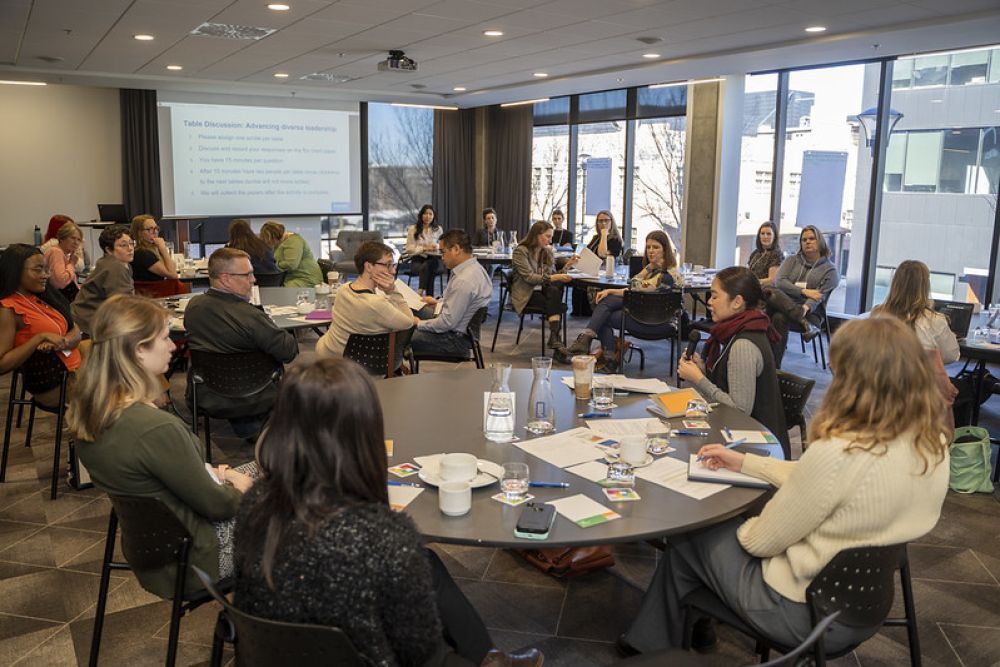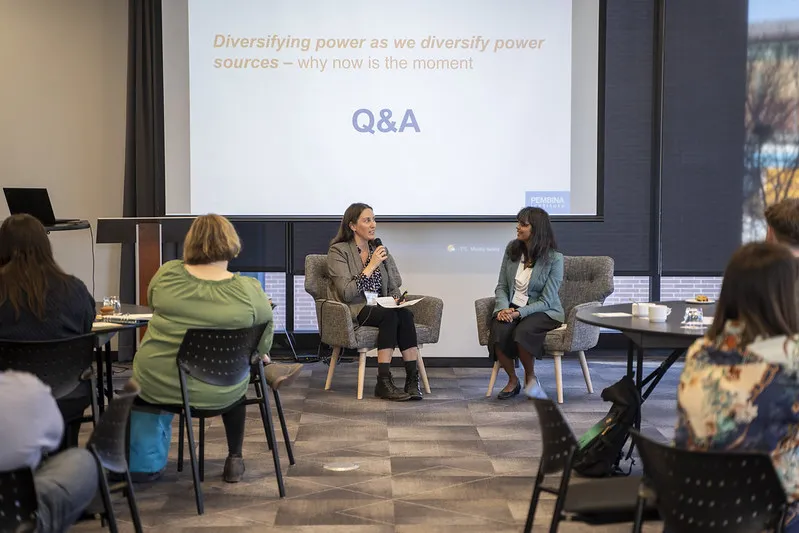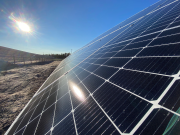Last month, the Pembina Institute was pleased to host “Putting People, Equity and Inclusion at the Centre of Climate Action,” our second Women in Energy Transition Thought Leaders’ Forum in Calgary, Alberta. The day took place against a backdrop of significant urgency and opportunity – both for the energy transition and for solidifying the place of equity within it.
This year sees many consequential policies and programs designed at the federal level that will form the building blocks of our new energy economy. The 2023 Federal Budget included billions worth of investments and tax credits that will contribute to advancing Canada’s transition to a more sustainable economy. At the international level, programs like the U.S. Inflation Reduction Act and similar initiatives in Europe have spurred new energy and competition for clean industries.
There has never been a better moment to advance a clean economy, nor a more urgent one to ensure that this new economy doesn’t mirror the old one when it comes to equity, diversity and inclusion (EDI).
Policy development needs a diverse and gender-focused lens

This forum brought together experts from new and traditional energy industries, unions, government, academic institutions and more. Where the last forum worked to prioritize our recommendations for advancing an equitable net-zero transition, this one focused on opportunities for implementing those recommendations, and building diverse and good quality jobs that will support the province’s changing energy sector in the decades to come.
The conversations and presentations throughout the day focused on the importance of including a gendered lens and diverse participation in the development of these new policies and programs to achieve at least two types of outcomes.
The first, to influence policy design by bringing women and other underrepresented groups to the table and pushing for ambition and consideration of EDI issues. The second, to effectively direct investments to advance gender equity. Every dollar that the government spends should do double duty by not just reducing emissions but also advancing co-benefits like gender equity.
Energy diversity: an opportunity for equity
The challenges of diversifying Alberta’s energy sector while also expanding gender equity in the province can feel a little bit like climbing two separate hills. With the industry currently one of the least gender diverse sectors in the country and also the highest emitter, it often feels like one has to be prioritized over the other.
During our opening dialogue with Binnu Jeyakumar, the Pembina Institute’s Electricity Program Director, she argued it’s actually one big opportunity to claim.
“Innovating and reimagining Alberta’s economy needs a made-in-Alberta plan that will require diverse viewpoints and participation from all sectors of the society,” she said. “You need to have women and under-represented people at the table in order to create an ambitious vision that has a better chance of lasting beyond our boom-and-bust cycles.”
She went on to say that the policies and programs needed to implement this vision also need to be designed well so that they advance equity in addition to reducing emissions. And at the same time, this change in our economy creates an opportunity for taking a massive leap in gender equity rather than incremental steps.
Transition can’t happen in a bubble
But that big leap forward cannot happen unless everyone, from provincial and local governments, to the oil and gas sector, to the renewable energy sector, to communities, as well as those traditionally underrepresented groups, participate in the process.
Binnu shared that when Alberta transitioned away from coal this decade, the industry and communities came late to the table, even though they were invited from the start. Their reluctance didn’t prevent the transition from happening, but it was less beneficial for those who did not have a chance to provide their perspective.
The participation of so many different people from so many different backgrounds and perspectives is one of the many reasons I see so much value in the diversity of these forums. The Pembina Institute thanks everyone who has engaged with the Women in Energy Transition project over the last three years for being willing to share their experiences.
We’ll be sharing more of the key outcomes for this forum later this month. The insights and recommendations summarized in that forthcoming report will continue to drive our work to advance these priorities during this pivotal moment for Alberta, Canada and the energy industry.
The Pembina Institute wishes to thank the McConnell Foundation and Women and Gender Equality (WAGE) Canada for their generous support of this event.








